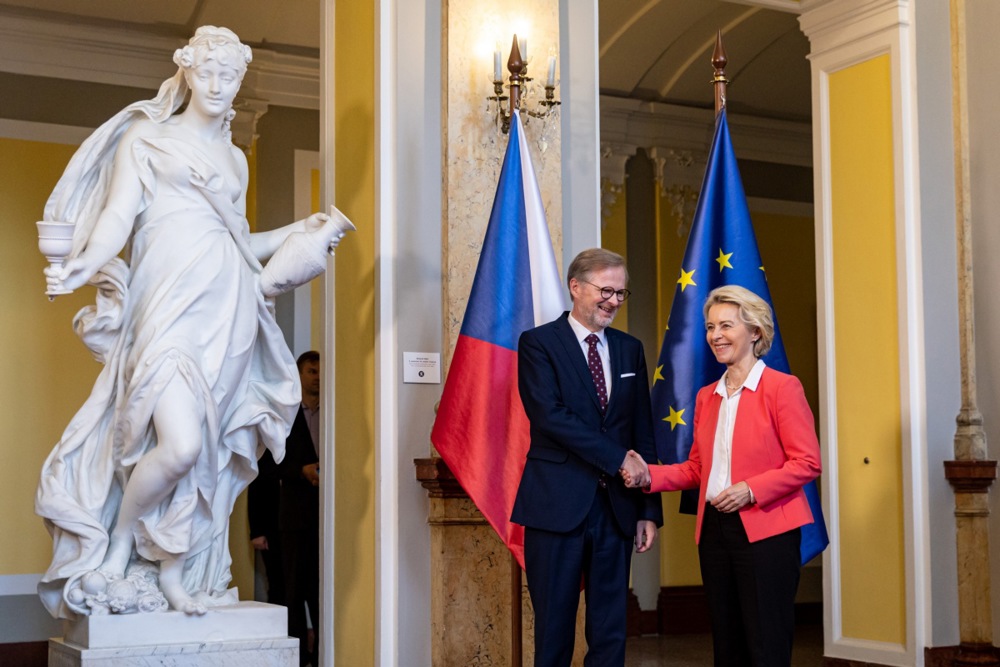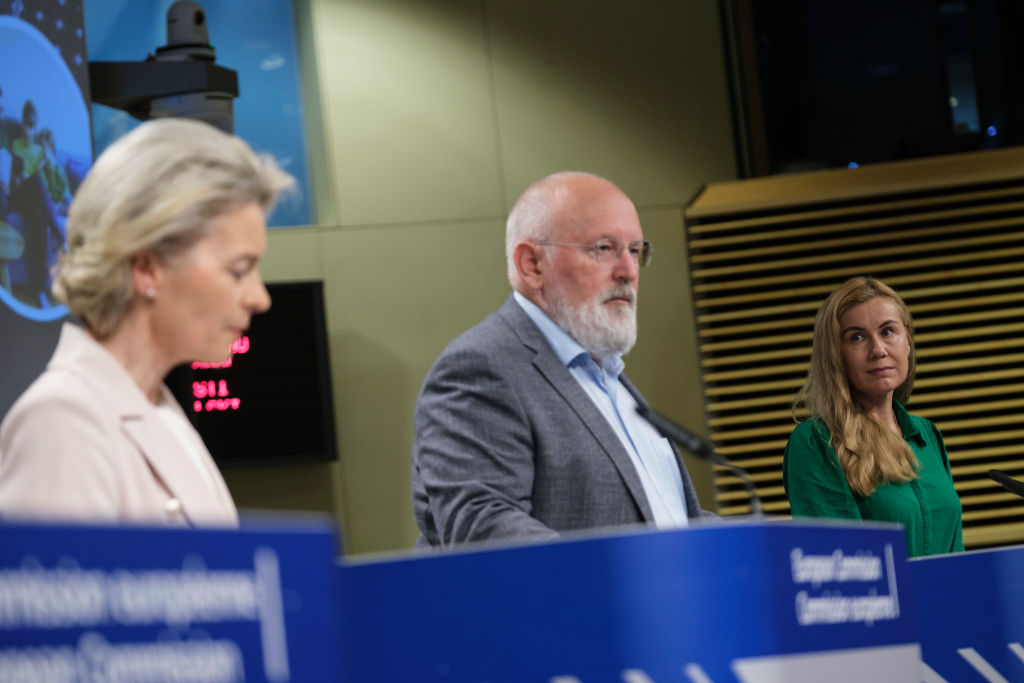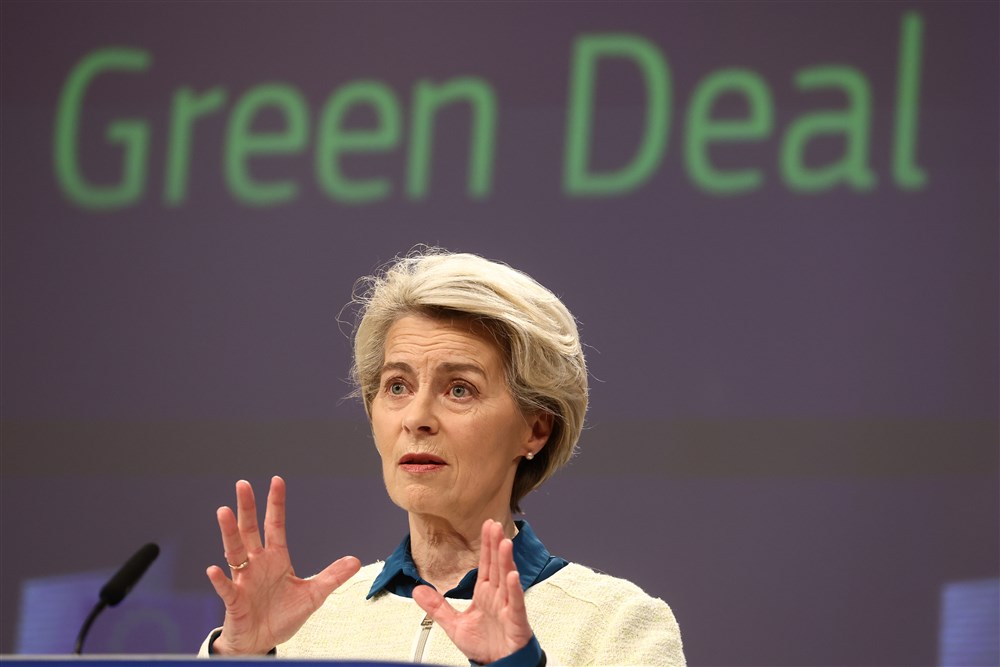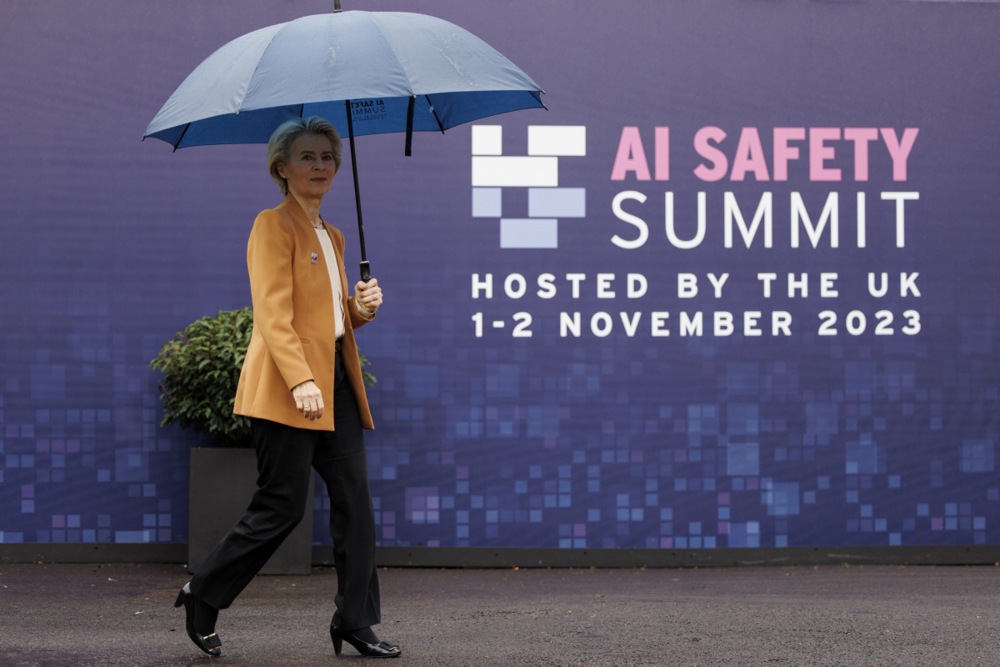On Thursday, July 18, Ursula von der Leyen won the approval of MEPs for a second term as President of the European Commission. She convinced MEPs largely by promising more power for Brussels.
Von der Leyen published her plans shortly before the vote, in a document called ‘Europe’s Choice, and political guidelines for the next European Commission’. She defended its core elements in her address to the European Parliament immediately before the vote.
It is essential, she says, that the democratic centre in Europe holds and people’s concerns and challenges are addressed.
“Failure to do so would fuel resentment and polarisation and leave a fertile ground for those who peddle simplistic solutions, but in reality want to destabilise our societies,” said von der Leyen.
Choices are the hinges of destiny.
Let us make the choice of strength, of leadership and of Europe.
My address as candidate for the Presidency of the @EU_Commission ↓ https://t.co/ZSgqha8PY4
— Ursula von der Leyen (@vonderleyen) July 18, 2024
Her solution for addressing these concerns largely consists of an expansion of the European Union’s power and competencies. For MEPs who were in doubt, she lay before them specific proposals.
The Green Deal von der Leyen launched in her first term will remain a priority, earning her the crucial support from the Greens, but it will be softened and nuanced.
By way of a “Clean Industrial Deal”, she aims to support industry in reaching EU-imposed climate goals.
Investments (and subsidies) will flow to energy-intensive sectors within industry and infrastructure.
Von der Leyen aims to create a “Single Digital Booking and Ticketing Regulation” for sustainable transport, which is largely to say, a European platform to buy train tickets.
She says she wants her Commission to be technology-neutral, specifically mentioning e-fuels, which opens the door slightly to relaxing the coming EU ban on combustion engines.
This neutrality also opens the door for nuclear energy, though she only mentions nuclear energy in a negative light, when speaking about threats linked to chemical, biological, radiological, and nuclear (CBRN) security.
Once viewing itself as the promotor of peace, the EU has shifted to more of a battle posture in recent years.
In her Strasbourg speech, von der Leyen condemned Hungarian PM Viktor Orbán’s self-described “peace mission”, calling it “an appeasement mission” instead.
Now, von der Leyen says a new era for European Defence and Security has begun. She aims to create a European Defence Union, led by a new Commissioner for Defence.
This new Commissioner will work closely with the next High Representative and Vice-President, following the Treaty of the EU.
In addition to more efficient defence investments on a European scale, she wants, in concert with NATO, to create a European rocket shield.
To please the Right, von der Leyen promises an integrated border management approach and to strengthen the EU’s border agency Frontex, including by tripling the number of European Border and Coast Guards to 30,000.
She also wants to double the manpower of Europol, Europe’s law enforcement agency.
Rather than continuing as a central hub for coordinating criminal intelligence and supporting the EU’s member states to fight crime, she wants to reform it into a “truly operational police agency”, bringing more powers to the European level.
NEW: Ursula von der Leyen has been reappointed as the European Commission president, with a revolt by several MEPs not being enough to unseat the German politician. https://t.co/ddrDZ61j6p
— Brussels Signal (@brusselssignal) July 18, 2024
Socialists also received some offerings. Von der Leyen promised to improve “fairness” in the economy. This included a Commissioner whose responsibilities will include housing and a first-ever European Affordable Housing Plan, despite very few EU competences on this matter. A Commissioner role for housing was an explicit demand from the Socialist and Democrat group, echoed as well by the Left group.
To reach young people, the incoming Commission will ensure “intergenerational fairness”.
This, though, does not mean that von der Leyen wants to reduce debt, a burden for the future generations that actually grew under her leadership. But it is instead a term she used regarding climate change.
Another novelty is a European Democracy Shield, to counter foreign information manipulation and interference online. Von der Leyen promises to create a European network of fact-checkers and step up digital enforcement.
In light of the rule of law, von der Leyen now says there will be a general regime of conditionality to all EU funds, meaning the Commission will be able to give a thumbs up to every release of funding, granting it much more political power.
The rule of law has already been extensively used to keep EU funds away from Poland and Hungary, largely because they did not agree with migration policies from Brussels.
Farmers, who suffered most under Green Deal legislation, seem to be getting promises they were given earlier this year.
Farming is defined as “a core part of our European way of life”, von der Leyen now says.
It is “vital they have a fair and sufficient income”, she says, and she wants to reward farmers for “working with nature”, and to protect food sovereignty.
The European Commission has amended its climate targets, set just last month after farmers succeeded in changing the agenda via violent Brussels protests. https://t.co/0t9mj8A9fo
— Brussels Signal (@brusselssignal) March 26, 2024
Internationally, support for Ukraine remains a top EU priority, and EU enlargement is meanwhile described as a “geopolitical imperative.” It will be focussed on “the wider neighbourhood, especially the Mediterranean”.
A new Commissioner for the Mediterranean will have to focus “on investment and partnerships, economic stability, job creation, energy, security, migration and other areas of mutual interests, respecting our values and principles.”
Despite voters having no say in her reappointment, and elections in fact suggesting many people wanted different leadership, von der Leyen promises to improve democratic legitimacy–notably through citizens’ participation.
She also says Treaty change is needed, to improve the Union. “We must also use enlargement as a catalyst for progress in terms of our capacity to act, our policies and our spending programmes,” says von der Leyen.
Finally, she says she wants to strengthen the European Parliament’s right of legislative initiative, together with more dialogue between the EP and the Commission.
In her previous programme, von der Leyen had promised the Green Deal, a defining of standards for new technologies, a Digital Services Act, increased use of the rule of law to protect ‘European values’, and the Migration Pact.
This gives a somewhat atypical result: von der Leyen is a politician who fulfilled her promises, made voters unhappy doing so, but ending up getting rewarded for it after all. She will have a larger majority in the Parliament supporting her than in her first term.
"She survived thanks to the votes from the Greens group. I fear she will have to deliver policy to make them happy!"
Swedish MEP Charlie @Weimers gives us his reaction to Ursula von der Leyen's reappointment as president of the European Commission. pic.twitter.com/Yhsh72KVhm
— Brussels Signal (@brusselssignal) July 18, 2024





